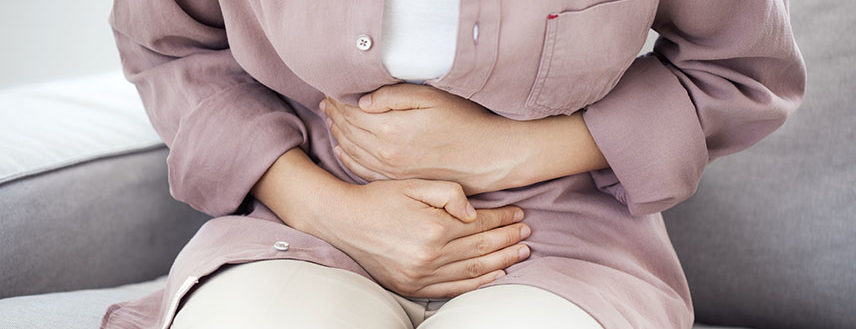
Suffering from any gastrointestinal disorder can be uncomfortable and embarrassing. It’s normal to have a little bit of gas and bloating, but feeling discomfort, pain or changes in your bathroom habits regularly is not. If you experience these things, you may be suffering from irritable bowel syndrome (IBS).
IBS is a digestive disorder that impacts the large intestine (colon) and causes uncomfortable symptoms like abdominal pain, bloating, and changes in bowel movements. Unfortunately, there’s no test to determine IBS. Instead, doctors look for symptoms that meet diagnostic criteria. It’s not a default diagnosis when everything else is ruled out, but rather a very distinct diagnosis based on specific criteria.
Women are more susceptible to IBS than men. Some research suggests a connection between the hormones estrogen and progesterone and IBS. Many women report gastrointestinal issues during menstruation, but those with IBS are more likely to have worsened symptoms during their menstrual cycle.
Generally, IBS involves abdominal pain plus altered bowel movements. The pain and bowel movements can take many forms. Here are some of the most common symptoms of IBS in women:
- Abdominal pain
- Cramping
- Bloating
- Excessive gas
- Diarrhea
- Constipation
- Indigestion
- Loss of appetite
There are often triggers that can bring on IBS symptoms. Some of the biggest triggers are artificial sweeteners, carbonated beverages, onions, garlic, smoking, and alcohol. Certain foods can also be triggers. IBS sufferers should avoid greasy foods in particular. They can increase colonic contractions, so those with a sensitive gut may respond more dramatically to that. Any food that causes gas can cause IBS symptoms, too.
Stress can also increase IBS symptoms. While the exact cause of IBS is unknown, researchers have found that a few factors that seem to contribute. Contractions in the intestine that are either too strong (causing diarrhea) or too weak (causing constipation) may be to blame, though the cause of these muscle problems may never be known. Other abnormalities in the GI tract, such as poorly coordinated signals between the brain and the intestines, can throw off the digestive process.
Scientists also believe that gut bacteria plays a role. Studies are currently looking at how probiotics can be used to treat IBS, specifically the kind that causes diarrhea. One of the difficulties of IBS is that not all patients respond that same way to the same treatments. It takes a lot of trial and error, which can be incredibly frustrating. If you are experiencing discomfort, pain or changes in your bathroom habits regularly, see your doctor.

Leave a Reply